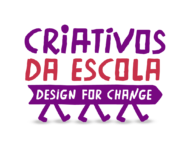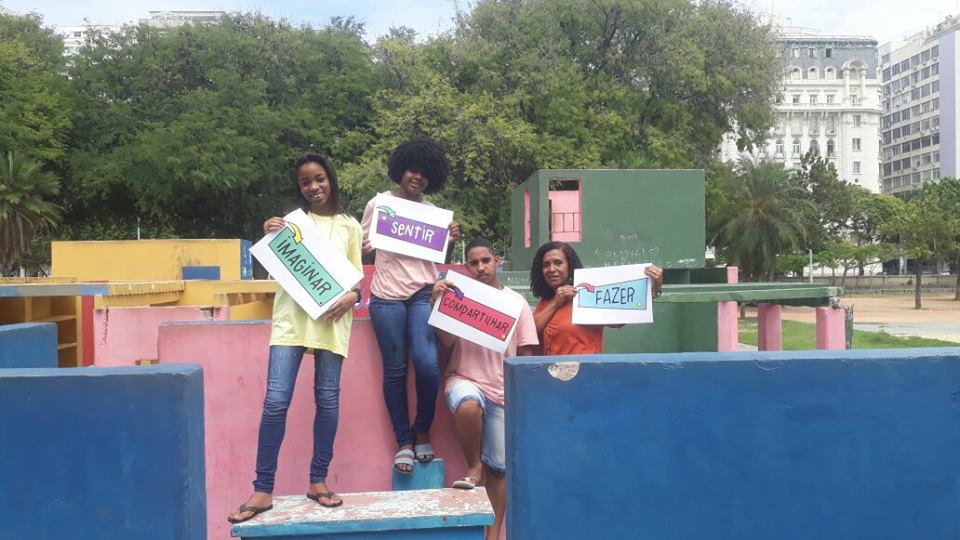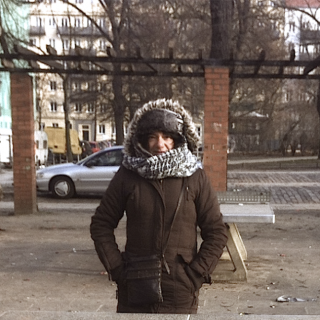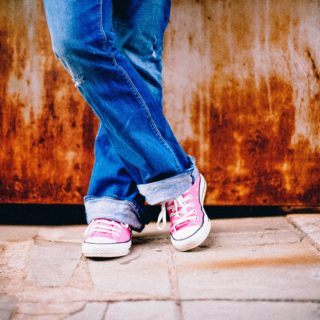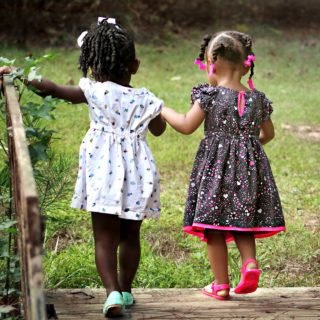It was a day like any other when 3rd-year high school students at the Deputado Luis Eduardo Magalhães State School, in Alagoinhas (in northeastern Brazil), received a photo on Whatsapp with awful news. One of their classmates had been killed. Adrielle Bispo dos Santos, 18, Carlos Henrique Carvalho, 19, and Islaine Medeiros Souza, 17, decided to take action. “The same thing could have happened to so many other people in our school. Why couldn’t we show them a different path?” recalls Souza.
The group of friends conducted a survey to try to better understand their classmates’ reality. “We saw a lot of vulnerability among the young people, and started a discussion with other students and teachers,” says Carvalho. “Some said they had absolutely no quality of life, most of them had very low self-esteem,” adds dos Santos.
In order to get their fellow students more involved in school, and to help solve the problems they identified, the group decided not only to work within the school, but also with students’ families and the community.
“Beyond the problems of violence and drug trafficking, many students have no family structure. We realized how much family issues can directly impact their learning and self-esteem,” explains Souza.
And so the three friends came up with the idea of opening the school up to the community, not only for teacher-parent meetings, but also for workshops in music, crafts, and professional guidance. The beginning was not easy. They faced resistance even from parents. But the families slowly got more and more involved in the project.
“I think getting the parents to participate was one of the project’s main achievements. We held a talk on a Sunday about the importance of family life for a person’s integral development, and about 60 people attended, including students, parents and the community. It was a great step forward,” says dos Santos.
Started in February 2017, Da Escola para o Mundo (From School to the World) project has since received support from Alagoinhas’ Municipal Department of Social Assistance, which brings in psychologists, social workers and workshop leaders. Some of the teachers have helped the students make the activities accessible to classmates with learning disabilities. The group has promoted its activities by visiting neighboring schools, posting on social networks, appearing on local radio and in the town’s online newspaper, visiting the City Council, and placing banners and posters around their neighborhood.
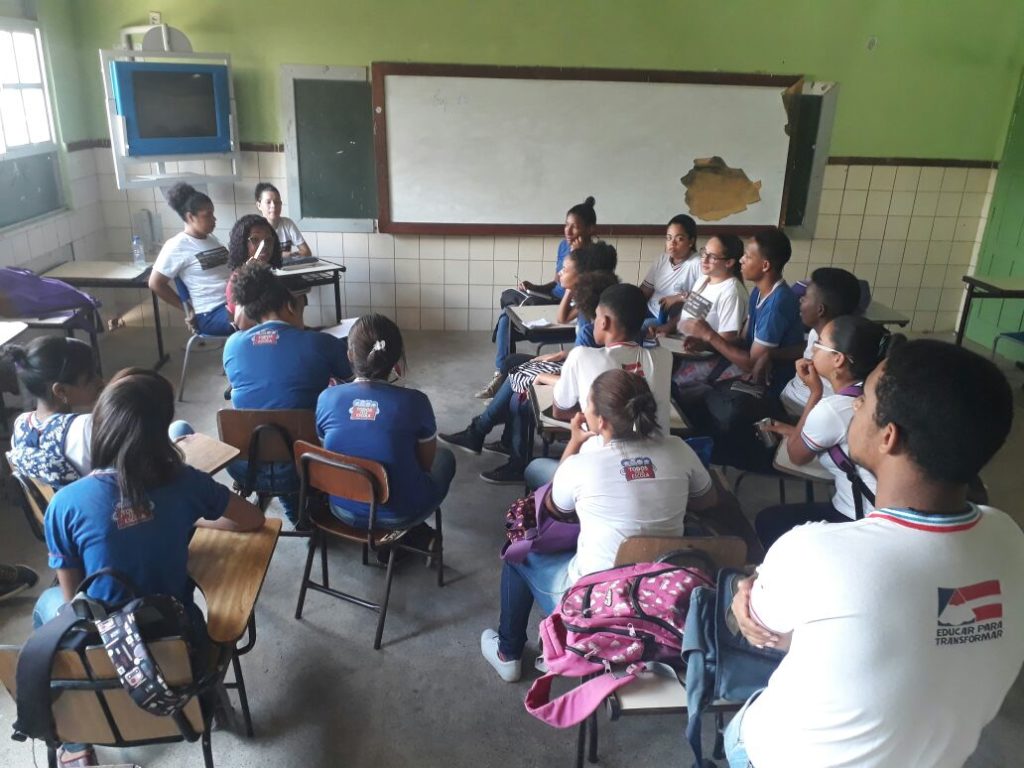
A conversation among students at Deputado Luis Eduardo Magalhães State School (Photo: Criativos da Escola/Design for Change)
FROM INDIFFERENCE TO CHANGE
According to Souza, a considerable number of people signed up for all the activities, but the one that attracted the most attention was the violin workshop. “Most of the participants are from that group that doesn’t like school, doesn’t want to study. And yet here they are, on a weekend, at the school, doing a violin workshop,” she marvels. “This is a great achievement!”
Some classmates offered to help with activities offered to children in Alagoinhas’ rural districts, Souza recalls, while others came up with their own initiatives, like rap workshops and freestyle battles.
“The most important aspect of this project was the improvement in the students’ self-awareness and their discovery of their own talent and potential,” says Maria de Lourdes Ramos, the teacher who helped the group in this endeavour. “I noticed how much the project, and the award from Design for Change, helped so many of these youngsters find new aspirations, in their studies as well as professionally,” she adds.
The group is now thinking about expanding the project beyond their school, their neighborhood, and the city of Alagoinhas. “We want to take this initiative everywhere we can,” says dos Santos. “As soon as I got involved in the project, I realized we have multiple paths we can follow.”
Like dos Santos, Carvalho and Souza graduated from high school in 2017, but they will stay on with From School to the World as volunteers. “We want to offer a new perspective. We want to see the students more motivated, happier, showing that they have skills and talent,” says Souza. A great change that, as far as these recent grads can tell, is only beginning.
Da Escola para o Mundo (From School to the World) was one of the winners of the 2017 Design for Change Challenge. Organized by Alana in Brazil, Design for Change encourages children and young people to transform their realities, recognizing them as the protagonists of their own stories of change. The initiative is part of a global movement that started in India and is now present in 65 countries, inspiring over 2.2 million children and youngsters around the world.
Published on 01/29/2018